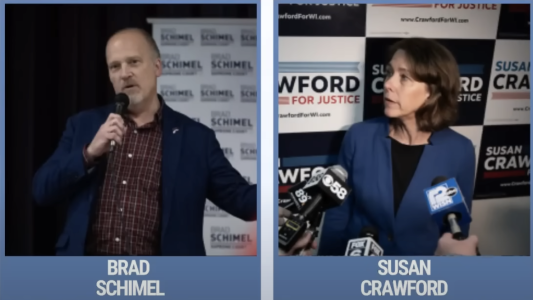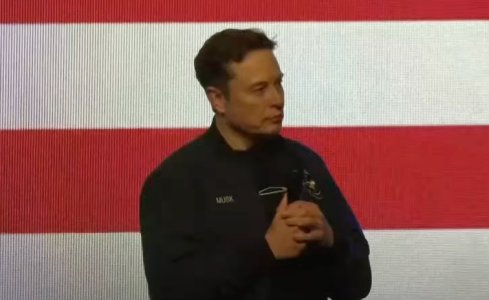Wisconsin Supreme Court’s decision: The legal battle involving Elon Musk
By
Veronica E.
- Replies 0
Disclaimer: This is an ongoing story, and new developments may arise. The information provided is based on currently available sources. Readers are encouraged to stay informed through official statements and legal proceedings.
Stories about billionaires and political power struggles can sometimes seem unrelated to everyday life.
However, a legal case involving Elon Musk has brought discussions about election laws into the spotlight.
With Wisconsin’s Supreme Court balance at stake, questions have emerged about the role of wealth in elections.
As the race gains national attention, many are watching closely.
On April 1, Wisconsin voters will determine whether the state Supreme Court maintains its current 4-3 liberal majority or shifts to conservative control—an outcome that could influence key policies statewide.
The race has become a national flashpoint, reflecting broader political tensions ahead of President Donald Trump’s second administration.
Both Trump and Musk have thrown their support behind Waukesha County Judge Brad Schimel, while Democrats have rallied behind Dane County Judge Susan Crawford.
Campaign funding has played a significant role, with Musk-backed groups contributing over $20 million to support Schimel.
Meanwhile, Democratic donors, including George Soros and Illinois Governor JB Pritzker, have provided millions to boost Crawford.
Attorney General Josh Kaul filed a lawsuit last Friday to block Musk’s offer of financial incentives to voters, arguing that it violates Wisconsin law prohibiting the exchange of anything of value for voting.
At the center of the controversy is Musk’s $2 million giveaway, in which two randomly selected voters would receive $1 million each after signing an online petition against “activist” judges.
The announcement was made just days before the election.
However, the Wisconsin Supreme Court unanimously declined to hear the case on Sunday, allowing Musk’s payments to stand.
The decision followed rulings from two lower courts—Columbia County Circuit Judge Andrew Voigt and an appellate court—both of which had already dismissed Kaul’s legal challenge.
Although Musk later deleted his post about the giveaway, Kaul maintains that the billionaire has not explicitly stated whether the payments will proceed.

Elon Musk weighed in on the election’s significance, posting on social media: "A Supreme Court election in Wisconsin might determine the fate of America."
At a town hall event for Schimel, President Donald Trump reinforced the national importance of the race, saying: "It's a very important race. I know you feel it's local, but it's not. It's really much more than local. The whole country is watching."
Schimel himself addressed concerns over Musk’s involvement, stating: "Everything Elon Musk talks about is restoring law and order to Wisconsin, restoring objectivity to our courts. He doesn't want anything from me except that I will follow the law and stop the Supreme Court from making the law from the bench. That's all he wants."
Source: X / @elonmusk.
On the other side of the debate, Democratic Party of Wisconsin Chair Ben Wikler accused Musk of violating election laws.
In a statement shared by the Associated Press, he said, "Let's be very clear: Elon Musk committed a crime the moment he offered million-dollar checks 'in appreciation for' voting, and deleting evidence of that crime changes nothing."
He added, "Under Wisconsin law, merely the offer of something of value—in this case, the chance to receive $1 million—is plainly illegal."
As Wisconsin residents prepare to cast their votes on Tuesday, the election has become about more than just judicial philosophy—it has become a test of political influence, campaign finance, and the intersection of wealth and democracy.
With both sides fiercely contesting the outcome, the implications of this race may extend far beyond the state’s borders.
Read next: Personal property is becoming a target in a protest wave no one saw coming

What do you think about the lawsuit against Musk? Do you believe his offer violated election laws, or was it a matter of free political expression? Share your thoughts in the comments below!
Stories about billionaires and political power struggles can sometimes seem unrelated to everyday life.
However, a legal case involving Elon Musk has brought discussions about election laws into the spotlight.
With Wisconsin’s Supreme Court balance at stake, questions have emerged about the role of wealth in elections.
As the race gains national attention, many are watching closely.
On April 1, Wisconsin voters will determine whether the state Supreme Court maintains its current 4-3 liberal majority or shifts to conservative control—an outcome that could influence key policies statewide.
The race has become a national flashpoint, reflecting broader political tensions ahead of President Donald Trump’s second administration.
Both Trump and Musk have thrown their support behind Waukesha County Judge Brad Schimel, while Democrats have rallied behind Dane County Judge Susan Crawford.
Campaign funding has played a significant role, with Musk-backed groups contributing over $20 million to support Schimel.
Meanwhile, Democratic donors, including George Soros and Illinois Governor JB Pritzker, have provided millions to boost Crawford.
The Legal Battle Over Musk’s Payments
Attorney General Josh Kaul filed a lawsuit last Friday to block Musk’s offer of financial incentives to voters, arguing that it violates Wisconsin law prohibiting the exchange of anything of value for voting.
At the center of the controversy is Musk’s $2 million giveaway, in which two randomly selected voters would receive $1 million each after signing an online petition against “activist” judges.
The announcement was made just days before the election.
However, the Wisconsin Supreme Court unanimously declined to hear the case on Sunday, allowing Musk’s payments to stand.
The decision followed rulings from two lower courts—Columbia County Circuit Judge Andrew Voigt and an appellate court—both of which had already dismissed Kaul’s legal challenge.
Although Musk later deleted his post about the giveaway, Kaul maintains that the billionaire has not explicitly stated whether the payments will proceed.

Brad Schimel (left) and Susan Crawford (right) are the key contenders in Wisconsin's high-stakes Supreme Court race. Image Source: YouTube / TODAY.
Also read: Elon Musk sparks backlash over repeated use of controversial term on social media
Key Figures Speak Out
Elon Musk weighed in on the election’s significance, posting on social media: "A Supreme Court election in Wisconsin might determine the fate of America."
At a town hall event for Schimel, President Donald Trump reinforced the national importance of the race, saying: "It's a very important race. I know you feel it's local, but it's not. It's really much more than local. The whole country is watching."
Schimel himself addressed concerns over Musk’s involvement, stating: "Everything Elon Musk talks about is restoring law and order to Wisconsin, restoring objectivity to our courts. He doesn't want anything from me except that I will follow the law and stop the Supreme Court from making the law from the bench. That's all he wants."
Source: X / @elonmusk.
On the other side of the debate, Democratic Party of Wisconsin Chair Ben Wikler accused Musk of violating election laws.
In a statement shared by the Associated Press, he said, "Let's be very clear: Elon Musk committed a crime the moment he offered million-dollar checks 'in appreciation for' voting, and deleting evidence of that crime changes nothing."
He added, "Under Wisconsin law, merely the offer of something of value—in this case, the chance to receive $1 million—is plainly illegal."
As Wisconsin residents prepare to cast their votes on Tuesday, the election has become about more than just judicial philosophy—it has become a test of political influence, campaign finance, and the intersection of wealth and democracy.
With both sides fiercely contesting the outcome, the implications of this race may extend far beyond the state’s borders.
Read next: Personal property is becoming a target in a protest wave no one saw coming
Key Takeaways
- The Wisconsin Supreme Court declined to hear a case against Elon Musk brought by the state's Attorney General.
- The court's decision was unanimous, following the dismissal of the challenge by two lower courts.
- The case involved payments offered by Elon Musk to individuals who signed an election-related petition.
- Attorney General Josh Kaul argued that the payments violated Wisconsin election laws, which prohibit offering anything of value in exchange for voting.
- This legal win for Elon Musk is part of an ongoing story.
What do you think about the lawsuit against Musk? Do you believe his offer violated election laws, or was it a matter of free political expression? Share your thoughts in the comments below!







